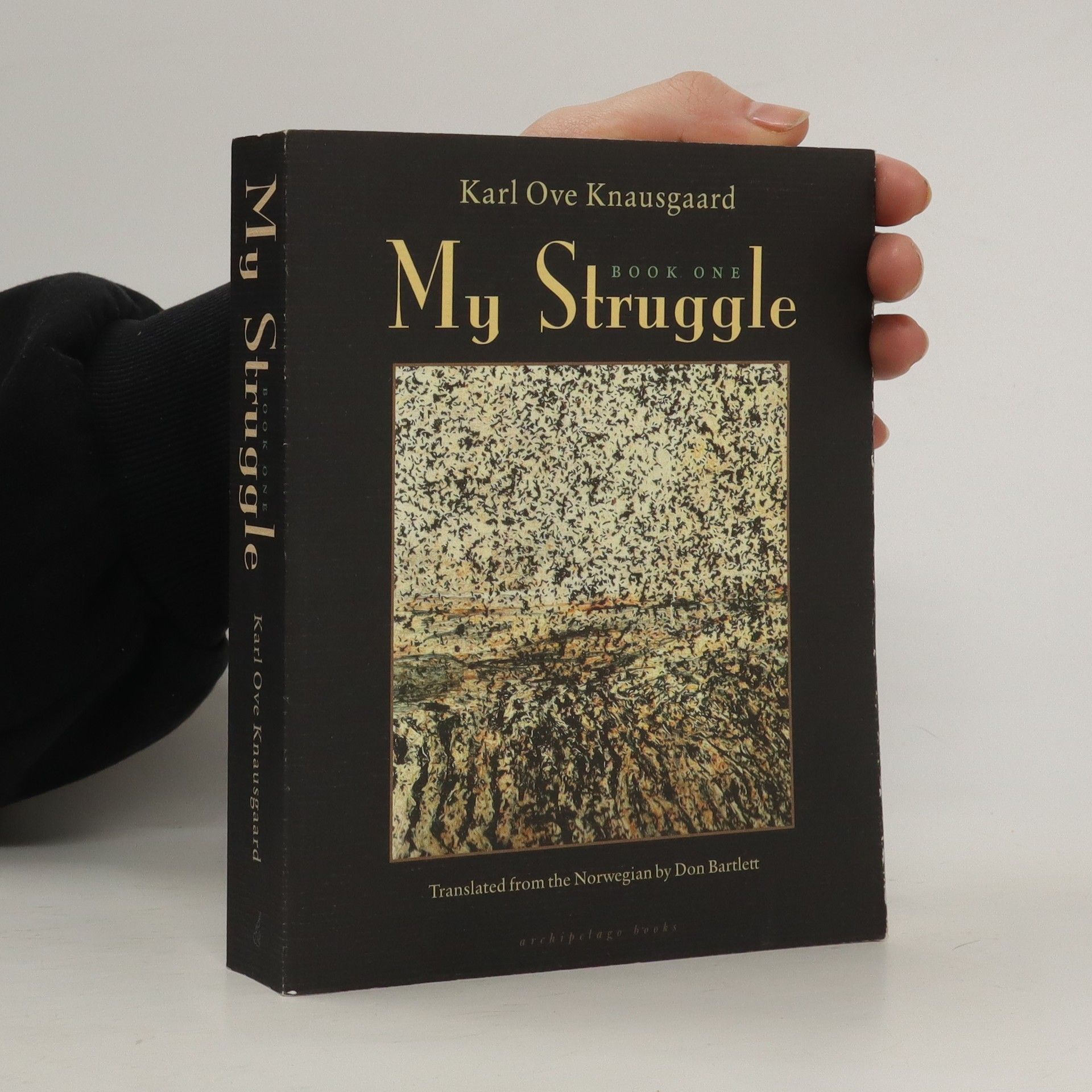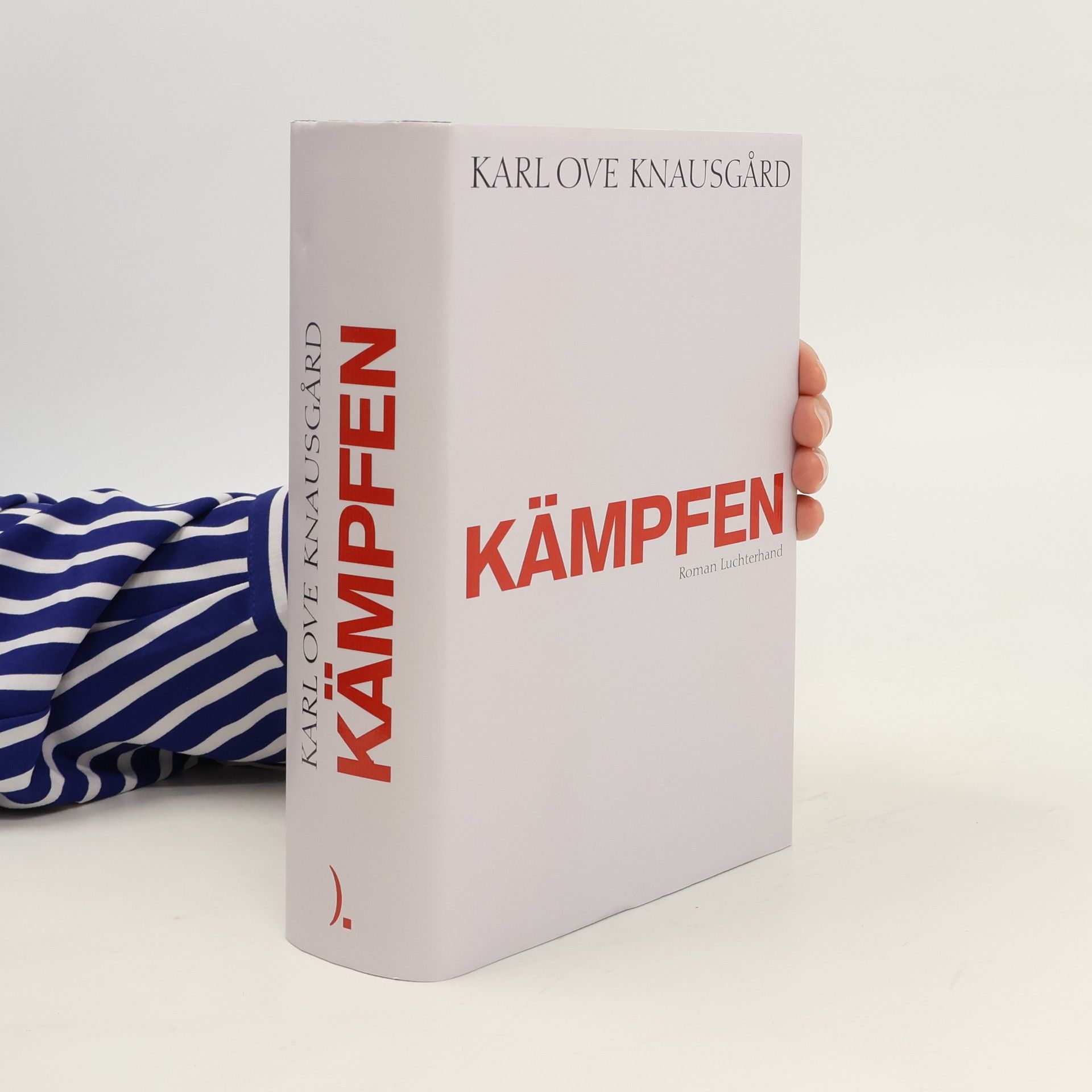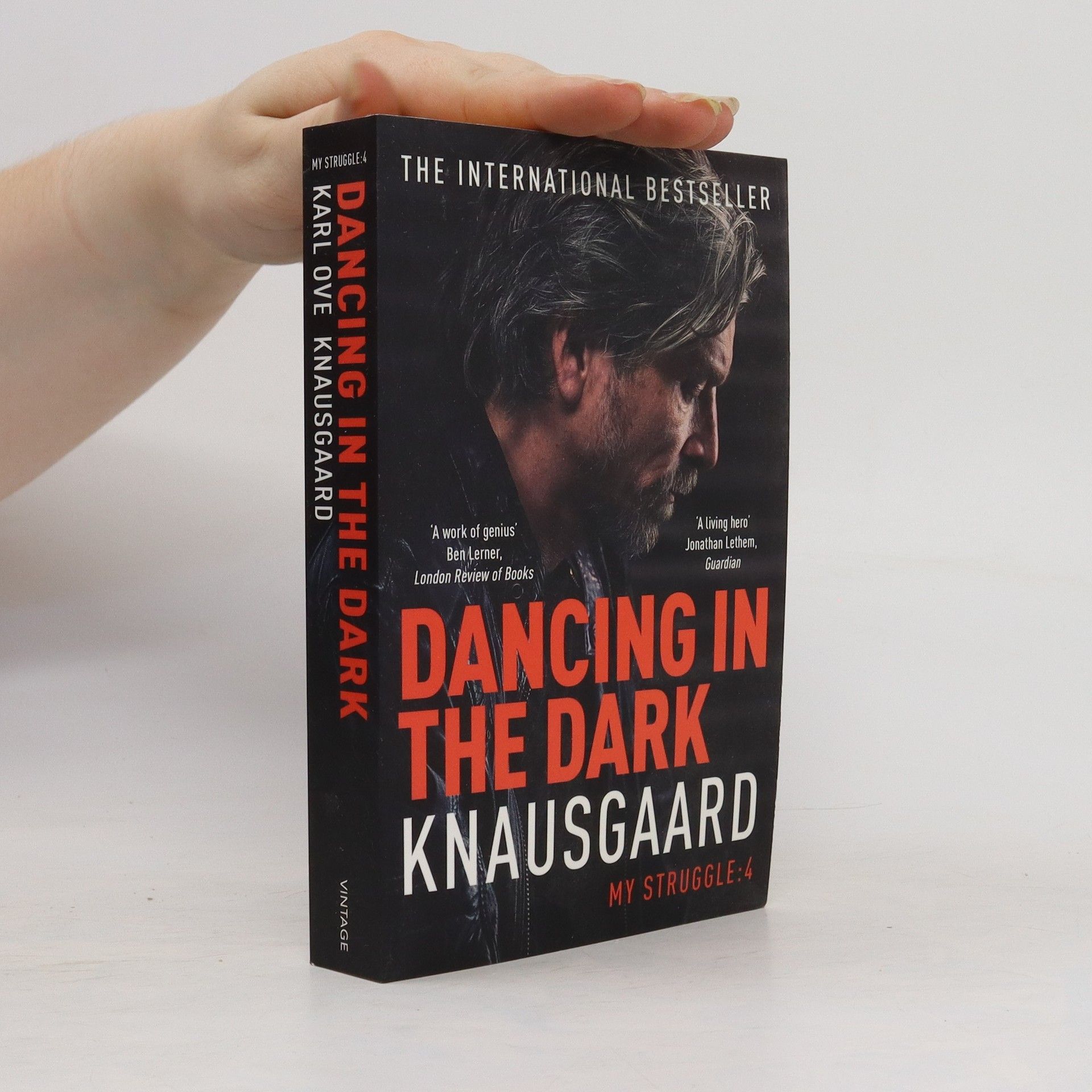The provocative, audacious, brilliant six-volume autobiographical novel that has unquestionably been the main event of contemporary European literature. It has earned favorable comparisons to its obvious literary forebears "A la recherche du temps perdu" and "Mein Kampf" but has been celebrated as the rare magnum opus that is intensely, addictively readable.
Min kamp Reihe
Diese weitläufige autobiografische Saga taucht tief in die Feinheiten des Alltagslebens ein und erforscht mit schonungsloser Ehrlichkeit die Tiefen familiärer Beziehungen. Der Autor durchlebt Erinnerungen an Kindheit, Jugend und die Formung des Selbst mit einer ungefilterten, intensiven Prosa. Es ist eine tiefgründige Auseinandersetzung mit der Suche nach Sinn im Alltäglichen und der Auseinandersetzung mit universellen Themen wie Sterblichkeit, Liebe und Zugehörigkeit. Die gesamte Reihe stellt ein ehrgeiziges literarisches Projekt dar, das bestrebt ist, die Essenz des Lebens selbst einzufangen.






Empfohlene Lesereihenfolge
- 1
- 2
Lieben
Roman
Zügellos, kompromisslos, intim Was bleibt von all der Romantik und Leidenschaft, wenn der Alltag Einzug hält ins Leben zweier moderner, auf Selbstverwirklichung drängender Menschen mit kleinen Kindern? Anspruch und Wirklichkeit prallen aufeinander. Das tägliche Ringen um Freiräume, Lebensfreude und Zeit wird zum unauflösbaren Konflikt. Die eigene Identität muss mit Klauen verteidigt, die Liebe immer wieder neu gefunden werden. Ein Kraftakt, von dem Karl Ove Knausgard in seinem Roman »Lieben« voller Zärtlichkeit und mit entwaffnender Ehrlichkeit erzählt. Das radikale Vaterporträt seines umjubelten Vorgängerromans »Sterben« wird nun in »Lieben« ergänzt durch das kompromisslose Suchen nach Nähe und Beziehung.
- 2
Zamilovaný muž. Můj boj 2
- 560 Seiten
- 20 Lesestunden
Karl Ove Knausgard se vrací ve vzpomínkách do doby, kdy ze dne na den opustil manželku i rodné Norsko, zamířil do Stockholmu a spřátelil se s jiným exulantem, intelektuálem a boxerem Geirem. A potkal Lindu, do níž se bláznivě a hluboce zamiloval, usadil se, stal se otcem. Minulost – stejně jako četné úvahové odbočky – funguje jako únik od současnosti, protkané peripetiemi života se třemi dětmi, prázdninovými výlety, narozeninovými oslavami, rodinnou každodenností života ve městě, pulzující, frustrující, naplňující. Leitmotivem druhé části autobiografického románu Můj boj je láska – ovšem v knausgardovském pojetí. I láska, stejně jako život, totiž znamená boj. Brilantní dílo důrazně plní slib, kterému nikdo nevěřil: že se čtenář i po několika stech stranách bude dožadovat pokračování.
- 3
Spielen
Roman
So selbstvergessen, so selbstverloren gelingt es nur in der Kindheit - das Spielen. Karl Ove Knausgård beleuchtet eine Zeit, in der Leben gleichbedeutend ist mit Entdecken, Fürchten, Wundern. Er erzählt vom Erwachsenwerden eines Kindes, das in seinen Nöten und Höhenflügen exemplarisch ist. „Spielen“, nach „Sterben“ und „Lieben“ der dritte Teil seines großen autobiographischen Projektes, beschreibt eine Welt, in der Kinder und Erwachsene parallele Leben führen, die sich nur selten begegnen. Eine Welt, in der hinter jeder Ecke dunkle Dämonen lauern, die aber auch die Verheißung auf aufgregende neue Welten in sich birgt.
- 4
Dancing in the dark. My struggle. Book 4.
- 560 Seiten
- 20 Lesestunden
The fourth part of a sensational literary cycle that has been hailed as "perhaps the most important literary enterprise of our times." --Rachel Cusk, Guardian 18 years old and fresh out of high school, Karl Ove Knausgaard moves to a tiny fisherman's village far north of the polar circle to work as a school teacher. He has no interest in the job itself -- or in any other job for that matter. His intention is to save up enough money to travel while finding the space and time to start his writing career. Initially everything looks fine: He writes his first few short stories, finds himself accepted by the hospitable locals and receives flattering attention from several beautiful local girls. But then, as the darkness of the long polar nights start to cover the beautiful landscape, Karl Ove's life also takes a darker turn. The stories he writes tend to repeat themselves, his drinking escalates and causes some disturbing blackouts, his repeated attempts at losing his virginity end in humiliation and shame, and to his own distress he also develops romantic feelings towards one of his 13-year-old students. Along the way, there are flashbacks to his high school years and the roots of his current problems. And then there is the shadow of his father, whose sharply increasing alcohol consumption serves as an ominous backdrop to Karl Ove's own lifestyle.
- 5
Träumen
Roman
14 Jahre verbrachte Knausgård in Bergen, bevor er aus der norwegischen Küstenstadt regelrecht nach Stockholm floh, als ginge es ins Exil. Es waren Jahre, in denen er so unermüdlich wie erfolglos versuchte, Schriftsteller zu werden, in denen schließlich seine erste Ehe scheiterte, in denen sich Momente kurzer Glückgefühle mit jenen tiefster Selbstverachtung die Hand gaben, in denen sich Demütigungen und Höhenräusche ebenso schnell abwechselten wie selbstzerstörerische Alkoholexzesse und erste künstlerische Erfolge. Dabei hatte es am Anfang so gut ausgesehen, dieses Leben in Bergen. Dem jungen Knausgård schien die Welt offenzustehen, all seine Träume schienen sich zu erfüllen. Er hatte einen Studienplatz an der Akademie für Schreibkunst bekommen, endlich eine Freundin gefunden ...
- 6
Ostatnia część międzynarodowego fenomenu wydawniczegoMoja walka 6, czyli opowieść o cenie sukcesu i portret młodego HitleraNa tę chwilę dziesiątki tysięcy polskich czytelnik�w czekało od lat. Po pięciu znakomicie przyjętych częściach autobiograficznej powieści Karla Ovego Knausgarda nadszedł czas na ostatnią odsłonę dzieła, o kt�rym m�wił cały literacki świat. Ale spokojnie, przed nami jeszcze ponad tysiąc stron do przeczytania?W sz�stej części Mojej walki ? bodaj najbardziej osobistej ? wyłania się najpełniejszy obraz pisarza, męża i człowieka. Karl Ove Knausgard, autor a zarazem bohater powieści, stoi u progu największego przełomu w swoim życiu ? właśnie ukazuje się pierwszy tom Mojej walki, powieści, kt�ra na zawsze odmieni życie jego i jego najbliższych, choć nie wiadomo jeszcze z jakim skutkiem? Zanim świat uzna jego książkę za międzynarodową sensację, przyjdzie zmierzyć mu się ze skandalem, pozwem sądowym oraz załamaniem nerwowym żony. Oto cena sukcesu.Moja walka. Powieść 6 nie jest jednak tylko zapisem zmagań pisarza z zastaną rzeczywistością, ale r�wnież powieścią, kt�ra rzuca światło na tytuł serii. Wszystko za sprawą opowieści o młodości Adolfa Hitlera??Co będzie potem, jak sobie poradzimy, gdy skończymy lekturę sz�stego, ostatniego tomu??Krzysztof Varga, ?Gazeta Wyborcza?
- 6
Kämpfen
Roman
Die Rücksichtslosigkeit anderen – aber vor allem sich selbst gegenüber. Die Radikalität des Ansatzes. Die schwindelerregenden Wechsel zwischen kleinsten Details und großen Gedanken. Die essayistischen Passagen zu Themen der Kunst- und Literaturgeschichte. Und diesmal auch: die berührende Schilderung einer Krankheit und Ehekrise. In „Kämpfen“, dem fulminanten Abschluss des sechsbändigen autobiographischen Projektes von Karl Ove Knausgård, findet sich alles, was schon die ersten fünf Bände zu einem Ereignis machte, und geht noch einmal weit darüber hinaus. Geschrieben nach dem sensationellen Erfolg der Vorgängerbände in Norwegen, dem darauf folgenden Skandal auf Grund der Preisgabe von vermeintlich Intimem, radikalisiert Knausgård seine schonungslose Methode noch einmal und treibt sie bis zu einer äußersten Schmerzgrenze. Ein künstlerischer Triumph, ein Vordringen zum Kern des Menschlichen zu Beginn des 21. Jahrhunderts.

